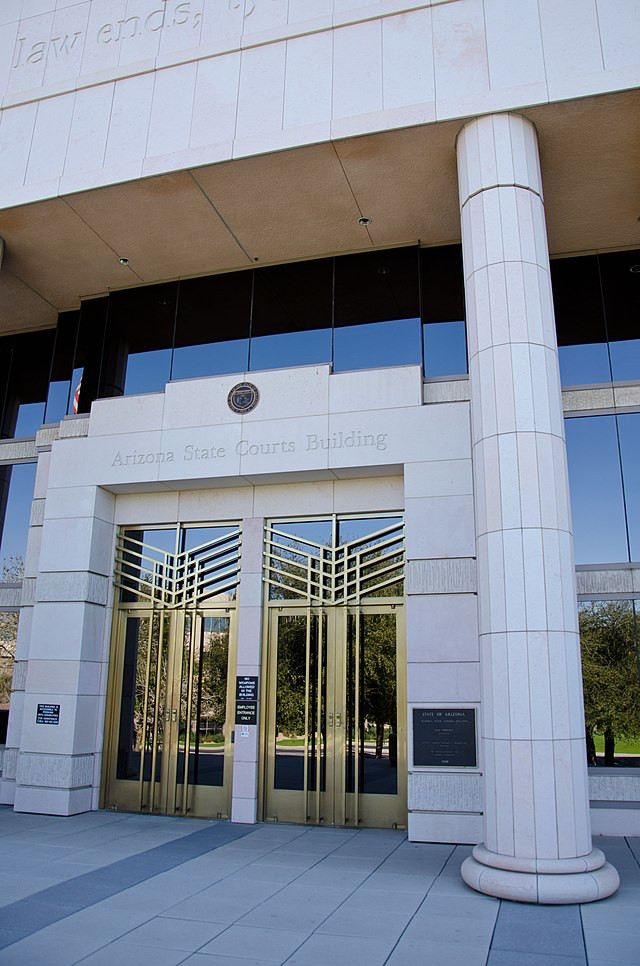The Arizona Supreme Court ruled on Friday that nearly 98,000 individuals whose citizenship status had been called into question due to a clerical error would be allowed to cast full ballots in the upcoming state and local elections. The decision marks a significant victory for voters who were at risk of disenfranchisement over a long-standing error in voter registration records, which led to confusion about their eligibility.
The issue arose when a coding oversight in Arizona's voter registration software affected residents who obtained driver's licenses before 1996. The error led to questions about whether these individuals had properly documented their U.S. citizenship, as required by a 2004 state law. The oversight meant that nearly 100,000 people were flagged as lacking proof of citizenship, despite being registered voters. The database mix-up primarily involved individuals who later obtained replacement licenses without having been asked to verify their citizenship status under the stricter regulations introduced after 2004.
Arizona Secretary of State Adrian Fontes, a Democrat, had already announced his intention to allow these voters to participate in the elections, despite the uncertainty surrounding their citizenship status. "This was discovered not because somebody was voting illegally and not because somebody was attempting to vote illegally, as far as we can tell," Fontes explained during a news conference. He described the situation as "basic voter roll maintenance" and emphasized the importance of ensuring voter rights were protected.
However, Stephen Richer, the Republican recorder of Maricopa County, took a different stance. Richer argued that these individuals had not satisfied Arizona's documented proof of citizenship law and should only be allowed to vote in federal elections, where citizenship verification rules are less stringent. Richer filed a lawsuit earlier in the week, asking the Arizona Supreme Court to determine whether these voters should have full ballot access.
On Friday, the court issued its decision, siding with Fontes and ruling that the nearly 98,000 voters should be able to cast ballots in both state and local races. "We are unwilling on these facts to disenfranchise voters en masse from participating in state contests," wrote Chief Justice Ann Scott Timmer in the court's decision. She added that doing so would violate principles of due process and was not authorized by state law.
The clerical error dates back to 2004, when Arizona introduced a requirement that voters must provide documented proof of citizenship to register. While driver's licenses issued after October 1996 are considered valid proof of citizenship, those issued before that date were not. The confusion stemmed from an automatic system that treated residents with replacement licenses as if they had already provided proof of citizenship, even when they had not.
With early voting set to begin in Arizona on October 9, the court's decision provides clarity for election officials and voters alike. Both Fontes and Richer expressed relief at the swift resolution of the case. "Thank God," Richer posted on X (formerly Twitter) following the ruling. "Thank you, Arizona Supreme Court, for your extremely quick and professional review of this matter." Fontes, meanwhile, called the ruling "a significant victory" for voting rights, adding, "We deeply appreciate the Arizona Supreme Court for their prompt and just resolution."
The decision has drawn praise from both sides of the political spectrum, underscoring the broad consensus on the need to protect voting rights in this instance. Arizona GOP Chair Gina Swoboda, who has been critical of the state's election processes in the past, also welcomed the court's ruling. "I could not be happier with this result," she said in an interview with NBC News. Swoboda has long called for stricter oversight of voter rolls, but in this case, she acknowledged the importance of ensuring that eligible voters are not wrongly excluded. "I think that, in and of itself, speaks to all of us recognizing that the weight and the responsibility of making sure that the franchise is provided to all voters outweighs any particular political interest."
Arizona, a critical swing state that flipped blue in the 2020 presidential election, has been at the center of debates over voting rights and election security in recent years. Republicans have pushed for stricter voting measures, including requiring proof of U.S. citizenship to participate in state and federal elections. The error involving nearly 98,000 voters has further complicated those efforts and highlighted the challenges of maintaining accurate voter rolls in a state with complex and evolving election laws.






